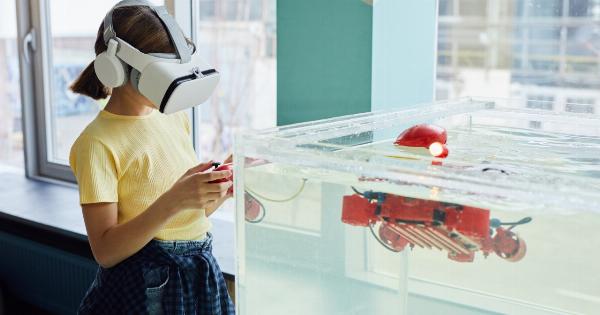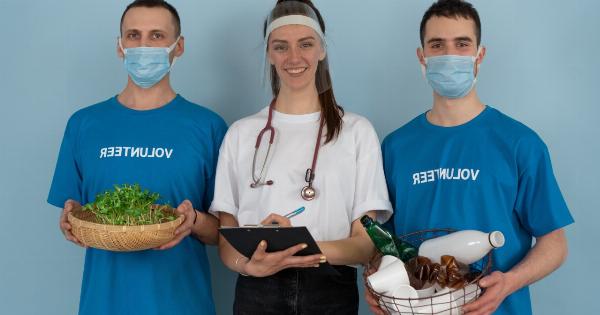As we enter the year 2030, the field of medicine has undergone a groundbreaking transformation.
With advancements in technology and a better understanding of the human body, doctors are now equipped with a plethora of tools and knowledge to provide more accurate diagnoses, effective treatments, and improved patient care. In this article, we will take a closer look at the exciting developments that have shaped the new age of medicine, as well as a doctor’s perspective on these changes.
1. Artificial Intelligence in Healthcare
Artificial Intelligence (AI) has emerged as a game-changer in the healthcare industry.
Through machine learning algorithms and deep neural networks, AI can analyze vast amounts of medical data, including patient records, genetic profiles, and medical literature, to identify patterns and make predictions. This technology allows doctors to make more accurate diagnoses, detect diseases at an early stage, and personalize treatment plans based on individual characteristics.
2. Genomic Medicine and Personalized Therapies
In the year 2030, genomic medicine has become a cornerstone of healthcare.
With the advancements in genetic sequencing and analysis, doctors can now gain insights into an individual’s genetic makeup and identify potential genetic predispositions to diseases. This knowledge enables tailored preventive strategies and personalized therapies, leading to better patient outcomes.
3. Telemedicine and Remote Patient Monitoring
The advent of telemedicine has transformed the way doctors provide care to patients. Through video consultations and remote monitoring devices, doctors can now reach patients in remote areas and monitor their health in real-time.
This technology has not only improved access to healthcare but also enhanced patient convenience and reduced healthcare costs.
4. Robotics and Minimally Invasive Surgery
Robotic technology has revolutionized surgical procedures in the year 2030. With more sophisticated robotic systems, doctors can perform minimally invasive surgeries with greater precision and control.
The use of robotics has translated into shorter hospital stays, reduced post-operative pain, and quicker recovery times for patients.
5. Nanomedicine: Targeted Drug Delivery
Nanomedicine has opened new doors in drug delivery systems. Nanoparticles can now be engineered to carry drugs directly to the target site within the body, minimizing side effects and improving therapeutic efficacy.
Doctors in 2030 can utilize these tiny particles to treat diseases such as cancer with greater precision and effectiveness.
6. Virtual Reality (VR) in Healthcare
With the advancements in virtual reality technology, doctors now have access to immersive VR experiences that can simulate medical procedures and training scenarios.
Virtual reality has proven to be a valuable tool for medical education and surgical training, allowing doctors to hone their skills in a realistic yet controlled environment.
7. 3D Printing in Medicine
3D printing has found numerous applications in the field of medicine in 2030. Doctors can now create patient-specific implants, prosthetics, and even organs using 3D printing technology.
This allows for highly customized medical interventions and improved patient satisfaction.
8. Bioinformatics and Big Data Analytics
The availability of vast amounts of medical data has paved the way for bioinformatics and big data analytics in healthcare.
Doctors can now analyze complex datasets to gain insights into disease patterns, treatment outcomes, and population health trends. This knowledge can guide healthcare policies, improve public health initiatives, and drive evidence-based decision-making.
9. Enhanced Mental Health Care
In the year 2030, mental health care has received heightened attention. With a better understanding of mental health disorders, doctors can now offer more effective treatments and interventions.
Technology-based solutions, such as virtual therapists and digital cognitive behavioral therapy programs, have expanded access to mental health care and reduced the stigma associated with seeking help.
10. Wearable Technology and Health Tracking
Wearable devices have become an integral part of healthcare in 2030. From smartwatches to fitness trackers, these devices can monitor various vital signs and provide real-time data to doctors.
This enables early detection of health issues, personalized health recommendations, and continuous monitoring of chronic conditions, leading to better disease management.
Conclusion
The year 2030 has ushered in an era of unprecedented advancements in medicine.
From the integration of AI and genomics to the utilization of robotics and nanomedicine, doctors now possess powerful tools to provide more accurate diagnoses, personalized treatments, and improved patient care. As these technologies continue to evolve, the future of medicine holds the promise of even greater breakthroughs. It is an exciting time to be a doctor and witness firsthand the positive impact these advancements have on human health.































